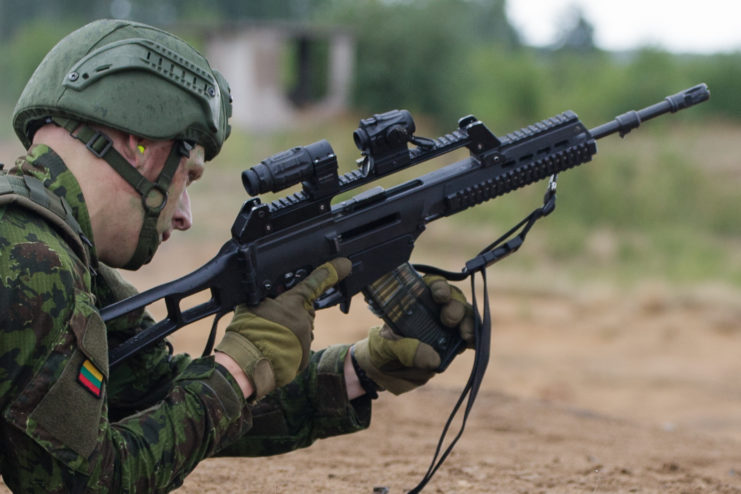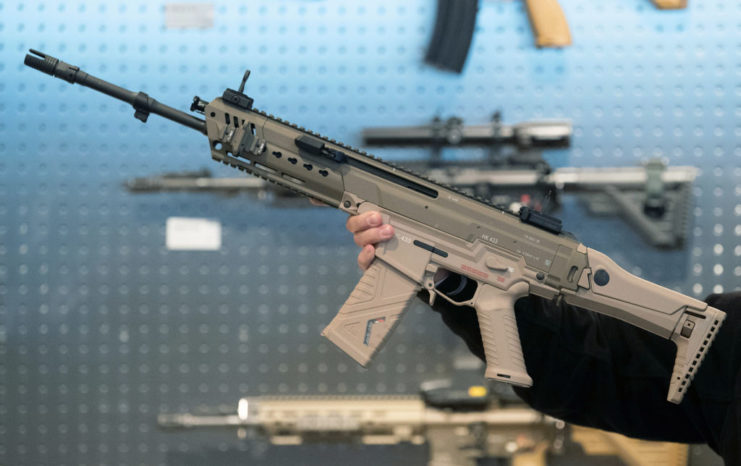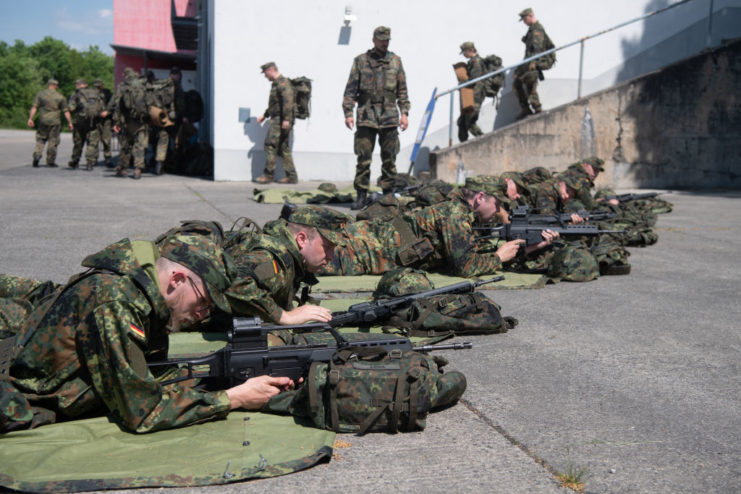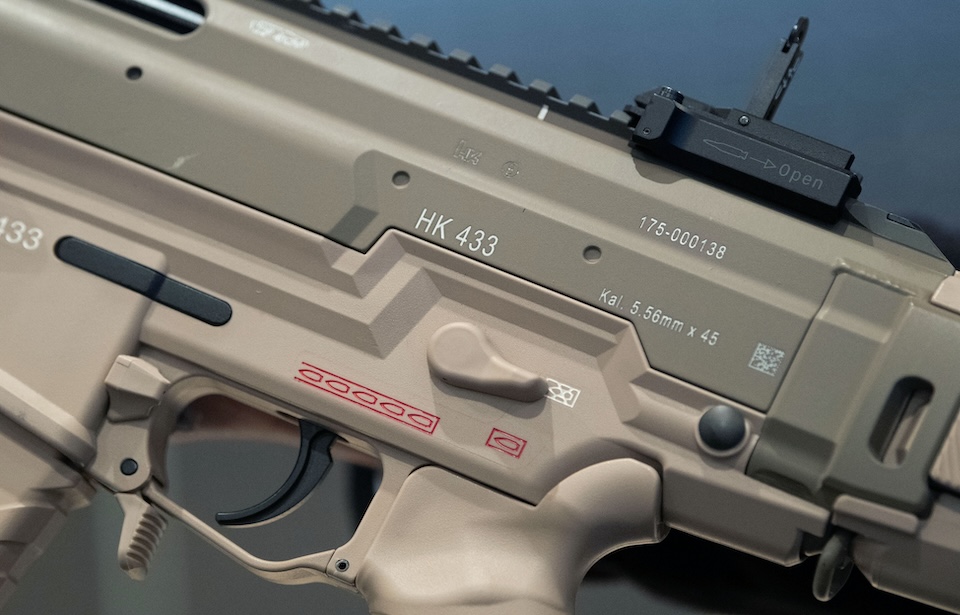Heckler & Koch shook up the firearms world in the 1990s with the introduction of the G36, a sleek successor to the aging G3. Built with lightweight composites and designed for ease of use, the rifle earned praise for its modularity and smooth handling, eventually becoming a standard choice for militaries across the globe.
Today, the company has raised the bar again with the HK433, a next-generation assault rifle that blends the best qualities of earlier designs. It unites the adaptability and ergonomics of the G36 with the toughness and familiar controls of the AR-15 platform. The outcome is a weapon tailored to the realities of modern combat—flexible, dependable, and engineered for peak performance on the battlefield.
The G36 was a top contender in European infantries
Before 2012, the G36 was widely used across Europe by infantry, special forces, and security teams, valued for its reliability and versatility. Germany developed a lighter and more affordable weapon, using the standard 5.56 mm x 45 NATO cartridge and a proven gas-operated system with a rotating bolt. It officially entered service in 1996 as a modern, adaptable firearm.

But by 2012, the G36 was showing its age. New testing exposed a serious flaw: its accuracy dropped sharply when the rifle overheated. This led the German military to begin looking for a replacement.
Three main candidates were considered: the Heckler & Koch HK416, the Heckler & Koch HK433, and the Haenel MK556. After thorough testing, the HK416A8 was officially selected as Germany’s new service rifle in 2022. Still, the HK433 remains a popular option among firearms experts and continues to draw attention for its advanced design.
The HK433 is the future of assault rifles
The HK433 was developed as a potential replacement for the G36 and brings together the best features from some of the world’s most well-known automatic rifles. This compact and highly adaptable weapon allows users to choose between two familiar operating systems – the familiar M16/M4/AR-15 system or the G36 platform, giving it broad appeal across different military and law enforcement communities.

It comes in six barrel lengths—ranging from 11 to 20 inches—making it suitable for a wide variety of missions and environments. The rifle is available in two color options: classic black and flat dark earth. Its fully ambidextrous controls mean it’s just as user-friendly for left-handed shooters as it is for right-handed ones, and adjustments can be made without the need for tools.
Standout features include an integrated round counter, a foldable and adjustable stock with a built-in cheek rest, and extensive customization options. Available accessories include a training bolt group, suppressor, bayonet, drum magazine, brass catcher, blank-firing attachment, and the ability to mount a forward grip or bipod—making the HK433 a highly flexible tool for modern armed forces.
The HK433 has a solution for every problem

The HK433 was engineered by Heckler & Koch with versatility at its core, designed to feel instantly familiar to soldiers and law enforcement officers regardless of whether they trained on the G36, HK416, or AR-15. Ambidextrous controls and a smart, ergonomic layout keep the learning curve low, while H&K stresses its promise of “maximum functional reliability with intuitive handling.” The result is a rifle that balances modularity, precision, and safety in equal measure.
Built for modern combat—especially in the close-quarters chaos of urban environments—the HK433 includes refinements that speak directly to frontline needs. Field stripping requires no tools, enabling fast maintenance under pressure. A clever safety mechanism even allows a round to be chambered while the rifle remains on safe, a small but critical detail when seconds can decide outcomes.
Outfitting flexibility is another hallmark: a full-length Picatinny rail and multiple mounting points support optics, lasers, grips, and mission-specific accessories. With a cyclic rate of 700 rounds per minute—nearly identical to the G36—the HK433 delivers familiar handling while embodying the next generation of German rifle design.
More from us: K31: The Swiss Rifle That’s Become a Popular Collector’s Item
Despite its cutting-edge design and proven performance, the HK433 faces an uphill battle in the U.S. market. The Army’s adoption of the SIG Sauer XM7 (formerly the XM5), chambered in the more powerful 6.8×51mm round, signals a decisive shift away from 5.56mm rifles like the HK433. While Heckler & Koch’s design offers exceptional modularity, intuitive controls, and battlefield versatility, the Army’s pivot toward a new caliber and next-generation system highlights a broader change in doctrine and priorities. For that reason, the HK433’s future as a standard-issue U.S. service rifle looks doubtful—though it may still thrive internationally or in the hands of specialized units.
